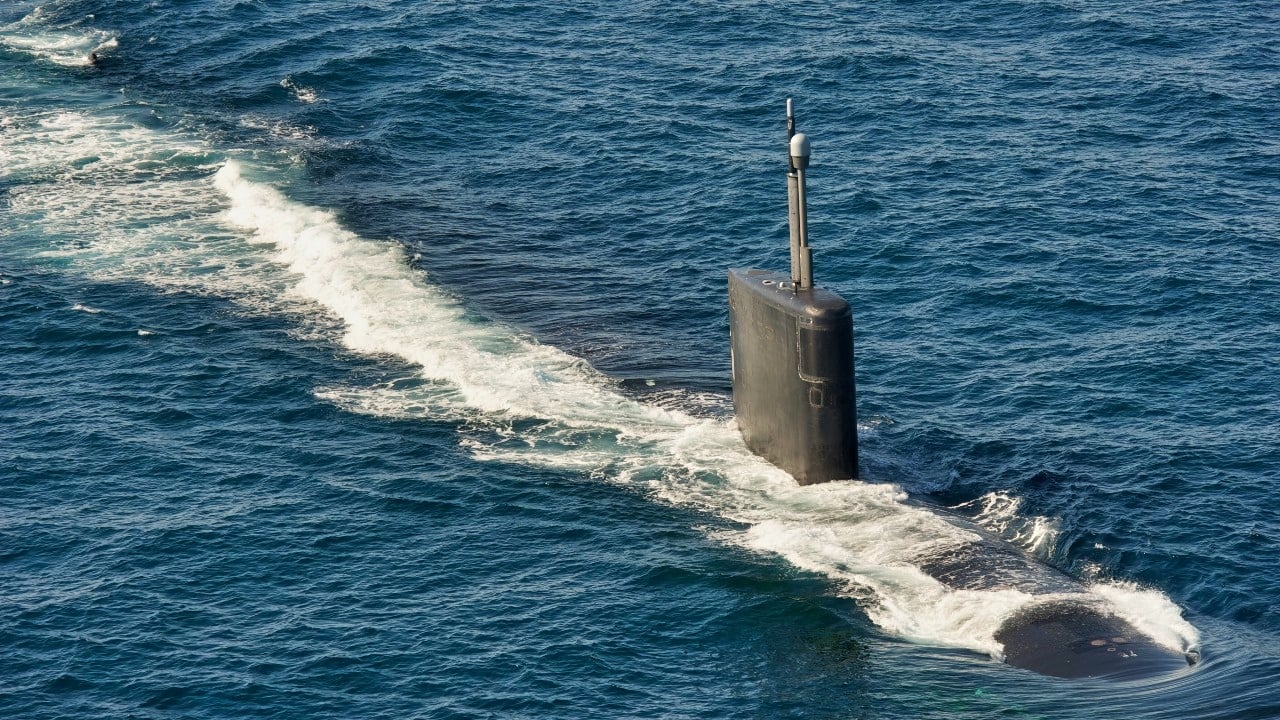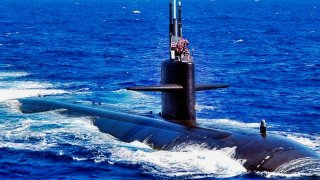How to Destroy a Navy Nuclear Submarine (Have to Run Aground)
In October 2003, the U.S. Navy’s nuclear-powered USS Hartford submarine ran aground off the coast of Sardinia, severely damaging its rudders, sonar, and electronic systems. While no nuclear reactor damage occurred, the incident was serious enough to result in the dismissal of the submarine’s captain and squadron commander.
3 Key Points: In October 2003, the U.S. Navy’s nuclear-powered USS Hartford submarine ran aground off the coast of Sardinia, severely damaging its rudders, sonar, and electronic systems. While no nuclear reactor damage occurred, the incident was serious enough to result in the dismissal of the submarine’s captain and squadron commander.

-The grounding was initially kept secret but leaked through sailors’ families. The situation could have led to an environmental disaster, especially if nuclear warhead-tipped Tomahawk missiles on board had been compromised.
-The incident sparked outrage in Italy, with locals and officials condemning the potential nuclear risks posed by U.S. military operations in their waters.
Nuclear Submarine USS Hartford Ran Aground Off Sardinia: What Happened
In the fall of 2003, a U.S. nuclear submarine ran aground off the northern coast of Sardinia. The USS Hartford was severely damaged in the incident, needing repairs afterward for her rudders, sonar, and electronic equipment.
“The vessel, 362-ft long and carrying Tomahawk cruise missiles, possibly with nuclear warheads, had left its Sardinian base at La Maddalena and was sailing east … after midnight on 25 October when it ran aground,” The Independent reported.
Slyly, the U.S. Navy chose to keep the grounding a secret. But crewmembers leaked the incident to their family members, who in turn seem to have leaked the incident to the press, after learning that their familial sailors were coming home from their six-month tour after just one month away.

Immediately following the grounding, the Hartford was given emergency repairs in Sardinia, before being sailed back to Norfolk, Virginia for a more comprehensive overhaul.
A Close Call for Nuclear Attack Submarine
“The US Navy says there was no damage to the Hartford’s nuclear reactor and no injuries,” The Independent reported. “But the severity of the incident was clear from the fact that both the captain, Commander Christopher R. Van Metre, and his squadron commander, Capt Greg Parker, who was also on board at the time, were summarily sacked.” Rear Admiral P. Stephen Stanley said that he “no longer had confidence in [the commanders] ability to command.” Six other crewmembers, including two officers, were also disciplined after the grounding.
Indeed, the incident could have been worse. The Hartford is a nuclear-powered submarine, meaning the vessel’s nuclear reactor could have been sunk and the spent nuclear fuel could have been released into the waters of the Mediterranean, causing environmental and economic hazards. Similarly, if the Hartford had been equipped with nuclear warhead-tipped Tomahawks, the missiles could have posed an additional environmental risk from radiation, or worse, from the fallout of an accidental detonation.
Understandably, the Italians were furious when they learned of the nearly averted environmental disaster (and the subsequent cover-up).
“It’s the umpteenth demonstration not only of the grave risks to which the civilian population is exposed … but also of the culture of silence that invariably covers military activities in Sardinia,” said Mauro Bulgarelli, then an Italian member of parliament. “Our country was denuclearized nearly 20 years ago, due to the wish of the overwhelming majority of the Italian population. It is unacceptable that, thanks to American troops based in our territory, the nuclear risk should be reintroduced. In another age that would be called colonization.”
The USS Hartford
The USS Hartford is a Los Angeles-class attack submarine, named for the city of Hartford, Connecticut, and commissioned in 1994. The boat is aptly named—U.S. submarines are often constructed in Groton, Connecticut and stationed in New London, Connecticut (where the Hartford was stationed). The nearby professional ice hockey team, the Hartford Wolfpack, is named for a “wolfpack” of submarines and features a submarine within the secondary logo.

The 2003 grounding would not be the Hartford’s only incident. In March 2009, the Hartford collided with amphibious transport dock USS New Orleans in the Strait of Hormuz. Fifteen sailors were injured and the New Orleans’s fuel tank was ruptured, spewing 25,000 gallons of diesel fuel into the surrounding waters.
About the Author: Harrison Kass
Harrison Kass is a defense and national security writer with over 1,000 total pieces on issues involving global affairs. An attorney, pilot, guitarist, and minor pro hockey player, Harrison joined the US Air Force as a Pilot Trainee but was medically discharged. Harrison holds a BA from Lake Forest College, a JD from the University of Oregon, and an MA from New York University. Harrison listens to Dokken.
Image Credit: Creative Commons images of Los Angeles-Class submarines.


